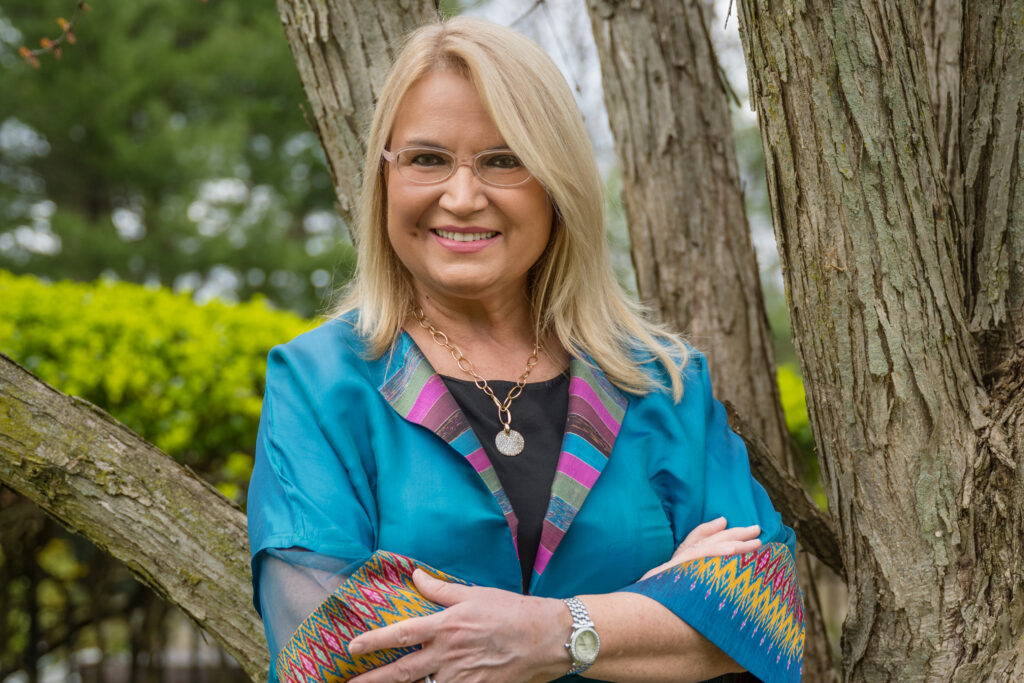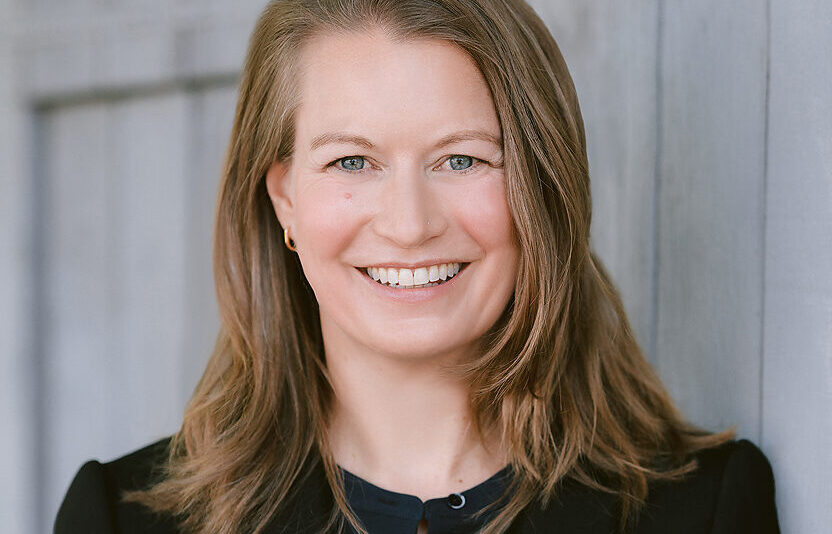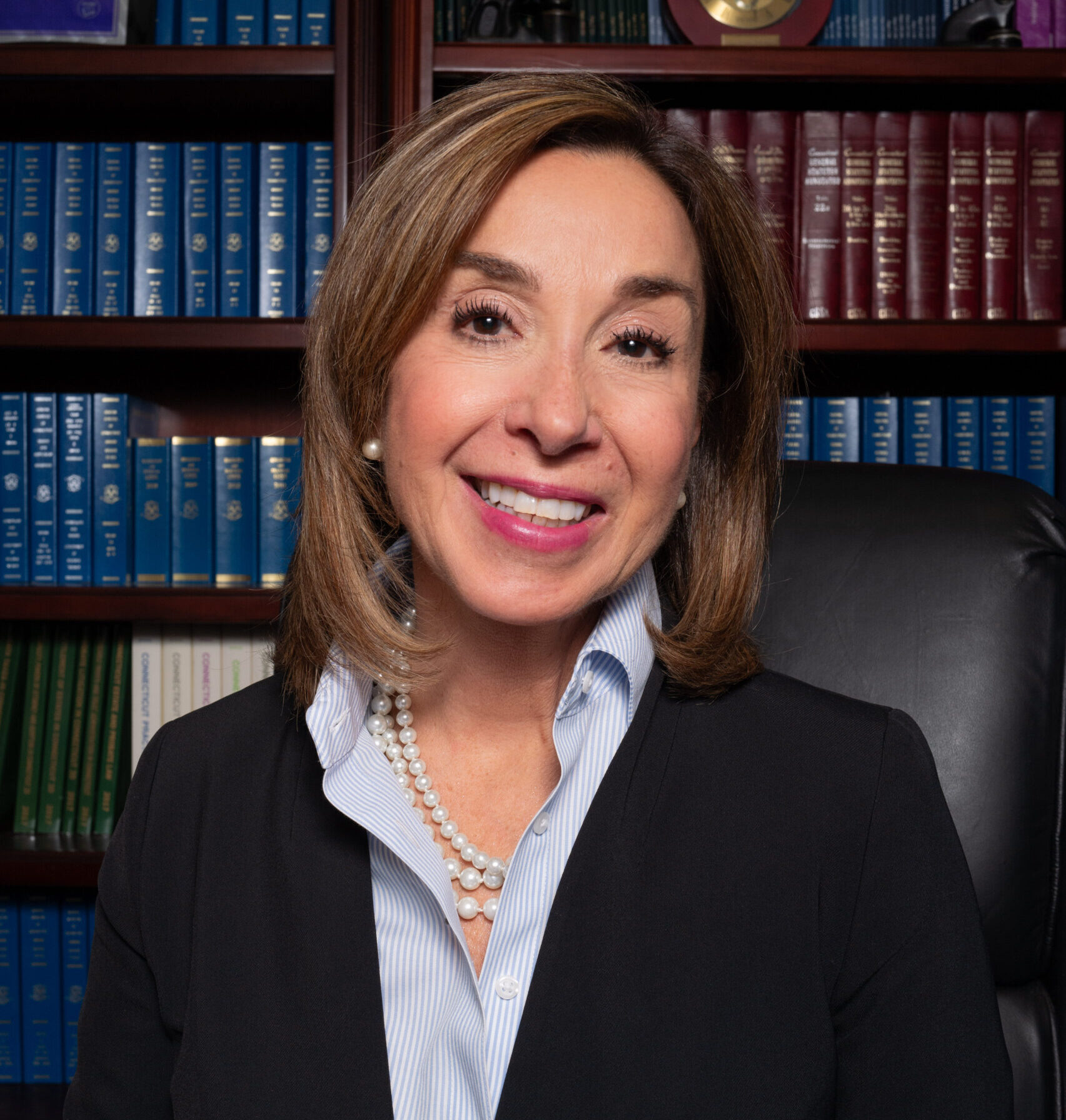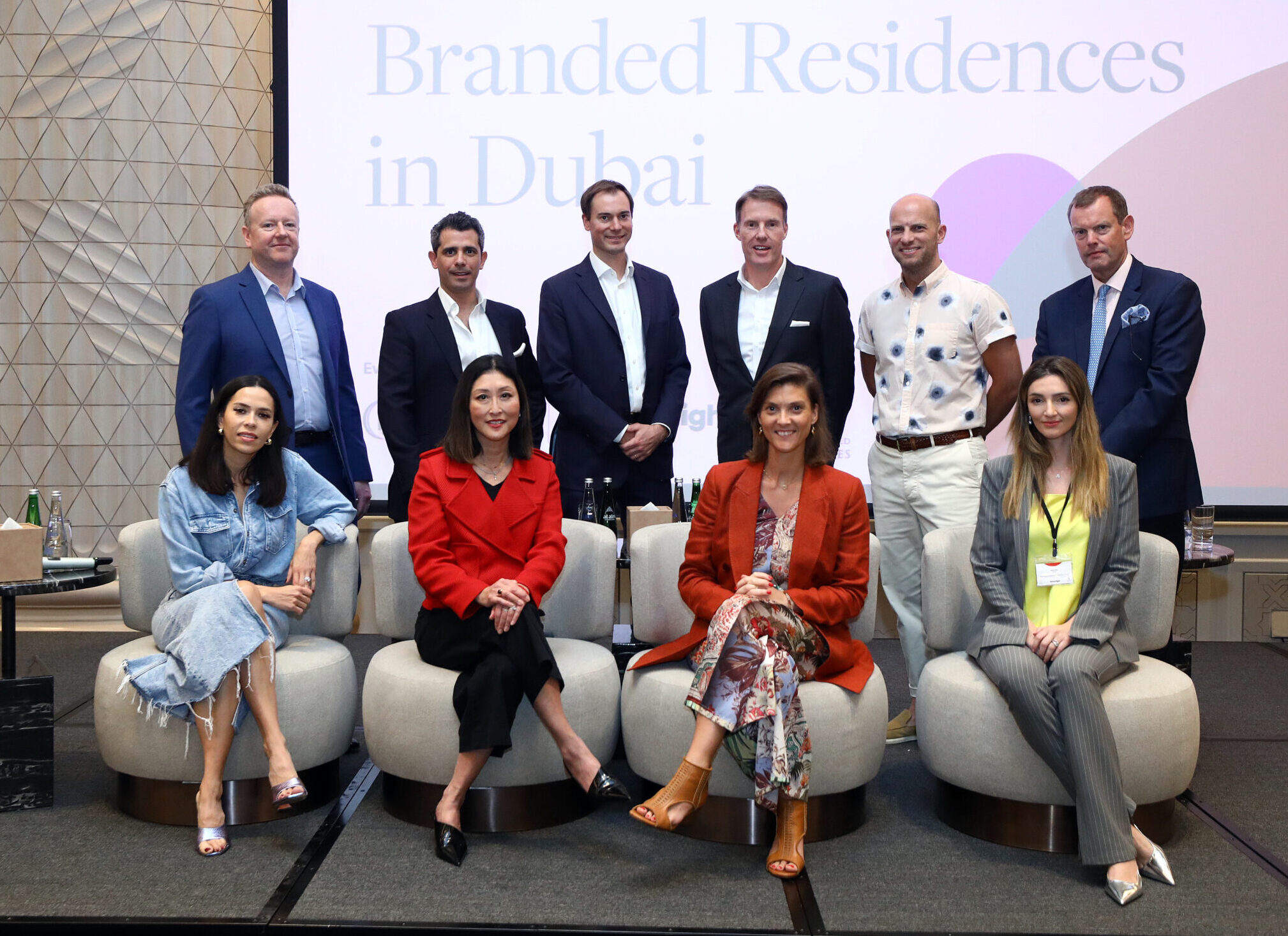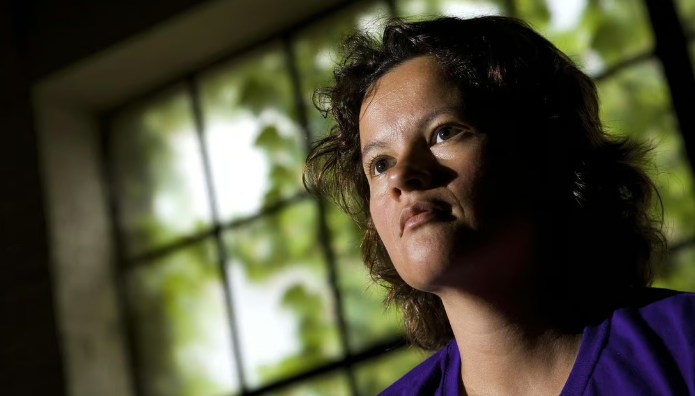I’m thrilled to publish this interview because Umran Beba is not just a personal hero of mine but also a source of inspiration for countless others worldwide. Her journey from her days at Bogazici University, the Harvard of Turkey, to becoming a giant in the corporate and philanthropic world is a story of dedication, insight, and heartfelt commitment to unity and progress.
Umran’s 25-year saga at PepsiCo is a narrative of transformation and championing diversity and inclusion, turning local products into global icons. Her global journey across Turkey, Hong Kong, the United Arab Emirates, and the USA molded her into a compassionate advocate for inclusive excellence.
Her work with the Beba Innovation & Entrepreneurship Foundation and August Leadership demonstrates her passion for empowering the next generation and promoting diversity, equity, and inclusion. Umran’s impact extends beyond professional achievements, touching lives and fostering diversity and innovation in profound ways.
I recall a board meeting where my outstanding CEO, Vuslat Dogan Sabanci, a proud Columbia alum, mentioned Umran’s name with great admiration, saying, “We need Umran Beba in here.” We all agreed without hesitation. Umran is genuinely one-of-a-kind. She embodies strength and bravery, is always ready for change, and is unafraid to reset life and embrace new challenges in different countries. Her ability to navigate and lead through change is exemplary, making her a pinnacle of leadership and resilience.
Umran Beba’s story isn’t just impressive; it’s a powerful reminder of the incredible things that can happen when we lead with our hearts, embrace authenticity, and commit to making a difference. She is an idol and a living example of how passion, resilience, and empathy can forge a legacy that inspires us all to reach higher and dream bigger.
Umran Beba lives with her husband, Prof. Ali Beba, in Greenwich, Connecticut. And, of course, he’s just as inspiring as she is, filling their home with incredible stories and achievements. It’s not often you find two idols under one roof, but that’s precisely what you get with them. And I am so glad she is in my state, bringing that inspiration closer to my home.
We had heartwarming conversations in Umran’s cozy, pure love and art-filled home. While Debra was capturing the photos, Ali and I worked in the kitchen to make coffees, chat about our beautiful homeland, and share fond anecdotes about Umran. With his incredible warmth and kindness, Ali is extraordinary and my husband’s favorite human being. He’s not just Umran’s husband but her strongest supporter, proving that standing by your partner’s side is a beautiful way to elevate each other. His story deserves to be told; perhaps soon, you will read an interview here at She.Work, to show the world the power of support and love in a relationship. Ali sets the standard for what it means to be a great partner. Also, he is a professor of entrepreneurship, but “The Professor of Entrepreneurship” that’s what people call him globally.
I am happy to share our insightful conversation; please meet dear Umran Beba.
Interview: Pinar Ozyigit
Photos: Debra Chute
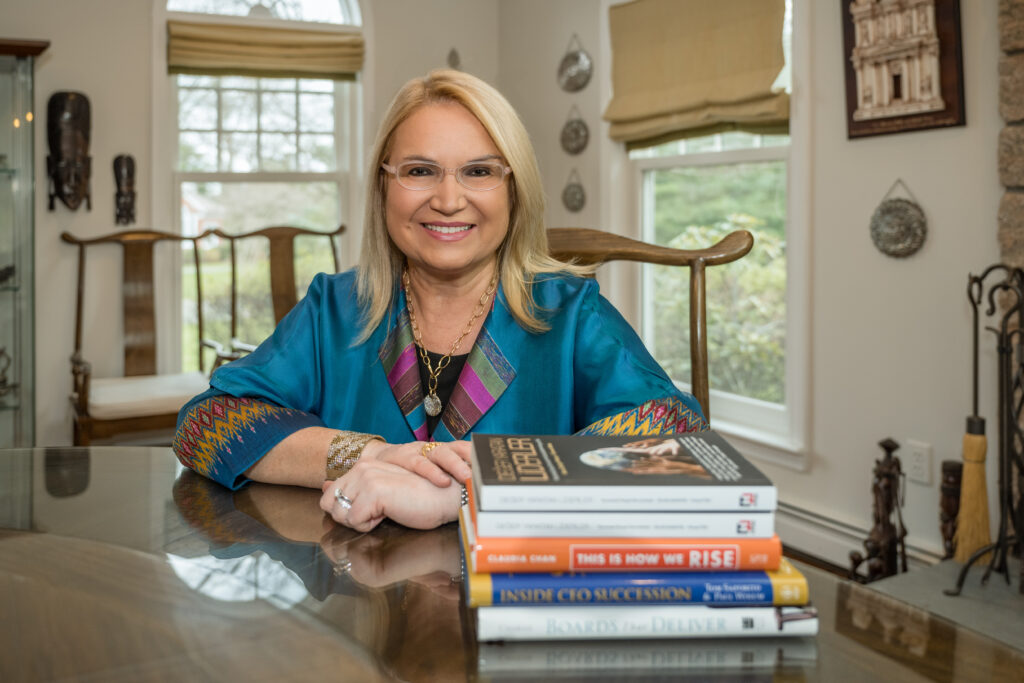
Can you share your career journey and what motivated you to start in the consumer goods industry at PepsiCo?
After graduating from industrial engineering at Bogazici in Istanbul, I decided to start my MBA and work at a research agency, Barem. The work was about consumer, customer, and employee insights and analysis. I was involved in many consumer insights work with CPG companies and did my thesis on consumer behavior. After my MBA, I joined a CPG company as a brand manager. I joined Colgate Palmolive in Istanbul, a joint venture at that time. I had the chance to work on global brands like Colgate, Palmolive, etc., and I became a marketing director in six years. Then, the snacks division of PepsiCo was my next destination, with different brands and target groups.
I had the chance to convert local brands to global brands, like the Doritos Panco campaign with Tarkan and Mustafa Sandal. Now, Doritos is a very successful brand in Turkiye. I moved to sales, HR, and general management after ten years in marketing. After these moves and delightful and successful years, my international career started, including beverages, as an East Mediterranean Business Unit General Manager, South East Europe President, and Asia Pacific President. We moved as a family to Hong Kong in 2010 for the Asia Pacific President role; 25 countries were in my remit. Then we moved to Dubai for a CHRO role in Asia Middle East Asia Division in 2013 and finally to the USA for headquarters SVP and CHRO roles, including HR Operations and Systems. I had different roles in HQ in Purchase, NY, and my final role was CDO, Chief Diversity Officer.
Why do you believe Pepsi selected you for the role of Diversity Officer after your time in marketing? What prompted the creation of this position, especially when many global brands still lack this title in their organizational chart?
PepsiCo has been leading diversity practices in the food and beverage industry since the 1940s, so the position of Chief Diversity Officer was not new when I was offered the role. How fantastic isn’t it?
My interest in diversity and inclusion started in 2006 when I was the only woman business unit general manager in the leadership team. I told myself I needed to do something about it and then shared this thinking with my CEO and CHRO. They were very supportive, and my journey of diversity, equity, and inclusion started as a side focus in 2006. My day job was as business unit general manager for the East Mediterranean Region of PepsiCo, working in 5 countries, namely Turkey, Jordan, Lebanon, Syria, and Iraq. Gender diversity was my first focus, but my multi-cultural diversity journey also started in this role. Understanding, respecting, and enjoying different cultures, working with our partners, bottlers, customers, consumers, and employees in this region.
As I moved around the globe, gender, multi-cultural, ethnic, different abilities, multi-generational, LGBTQ, race, and immigrant diversity focus areas have been my focus and education. You learn it, and then, at some point, you want to do something about it globally. Setting targets, policies, task forces, KPIs, mentoring programs, and employee resource groups are all part of the job as a CDO.
My marketing background has always helped me properly present insights to the right audience. My multi-functional background has been a blessing.
How did you maintain your passion and drive for work over such an extended period at PepsiCo? What kept you motivated and engaged, and how did you contribute to and experience the evolution of the corporate culture?
I was with PepsiCo for 25 years and worked in different roles and four other locations around the globe. I joined marketing and moved to sales, HR, general management, President, CHRO, and CDO roles, so I did not have time to get bored.
My values aligned with the company; this kept me going, as did the roles, new challenges, new cultures, growth, innovation, and global teams. I have met and worked with incredible people all around the globe, and I am still in touch with many of my work colleagues.
What are the most important lessons you learned from staying with the same company for a long time? How did you adapt and grow within the constantly changing environment of a multinational company like PepsiCo over 25 years, like loyalty and career development?
Be open to new opportunities, roles, and locations. Keep growing, learning, and sharing. People make all the difference, construct the best teams, and grow with them. Respect different cultures, learn and adapt your leadership style while staying authentic.
I created a personal system aligned with my personality; here are short titles for my belief system. Be open-minded. Take some risks. Have sponsors and mentors. Deliver results with your teams and develop your bench. Be curious, explore, learn and adapt. Stay authentic. Respect partnerships. And they all worked out perfectly.
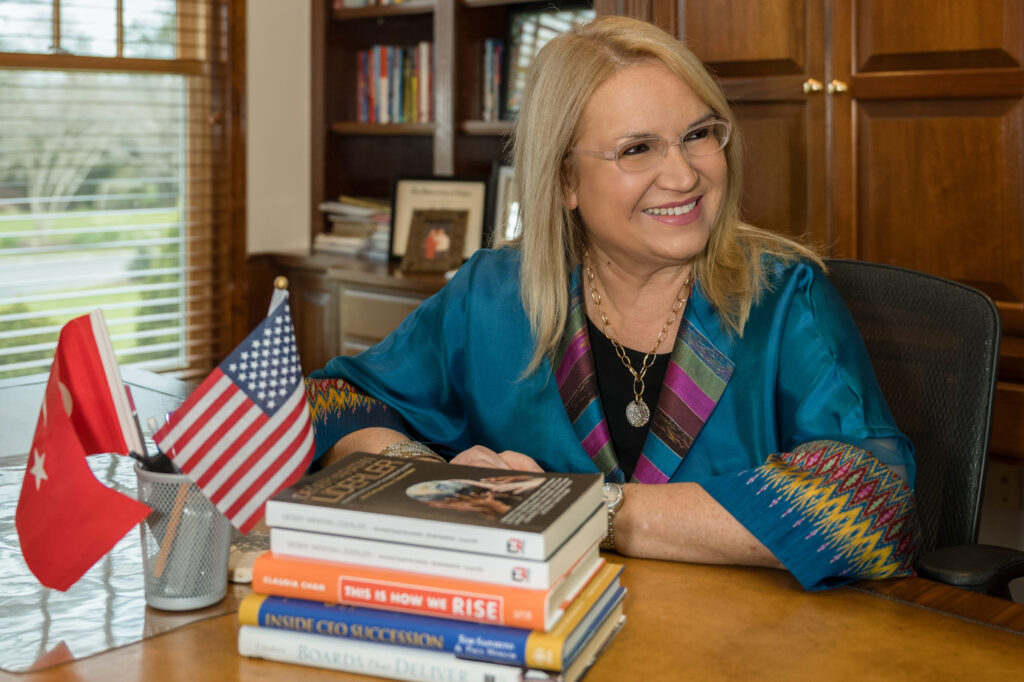
As a leader in diversity and inclusion, how did you integrate values into core business strategies, and what are some effective strategies you’ve employed?
Everything starts with vision, mission, and values, then strategies, action plans and KPIs, regular tracking, evaluating, and adapting as needed. Values are an integral part of how we conduct business.
At PepsiCo or at August Leadership, it is about customer centricity, respecting others, building trust, collaboration, integrity, and being accountable.
The sentences might change, but the core does not change much. Loving what you do is the key.
Enjoying working with others and good collaboration brings innovation and better results to everything. Respecting different styles creates harmony, which is vital. Consumer and customer matter; we should listen to them. And the last and most important things: Listen, understand, and show empathy.
What advice would you give to companies to create a lasting societal and diversity impact?
Companies should have a philosophy of performing while caring for communities. It is about growth, profitability, and sharing. While your communities grow with your company’s contributions, they get value from your company’s thoughtful operations.
How has mentorship influenced your career, and can you share an experience where mentorship significantly impacted your decisions or leadership style?
I had mentors on the way, of course, and they challenged my limitations sometimes and pushed me to take risks and be open to big moves. In terms of style, I started being less traditional, more open-minded, and a global citizen.
Can you share an experience where mentorship or guidance significantly impacted your career decisions or leadership style?
Moving from Istanbul to Hong Kong was tough, and I had different guidance. Ultimately, we made it, and it was great for me in terms of my career. It wasn’t easy, but it was a great learning and maturing experience.
How has your approach to CSR evolved, and can you share an example of how you’ve driven sustainable social change or integrated CSR into a company’s culture? (CSR means Corporate Social Responsibility projects in big corporate environments.)
When I was in Istanbul as the commercial director of Frito Lay, we decided to open reading and study rooms in the southeast part of Turkiye. After a while, we noticed that the bigger problem in the region is girls not going to school due to monetary reasons or conservative thinking. We initiated a scholarship program, which became company-wide and continues after 20 years; some of these girls graduated and became lawyers and doctors.
What advice would you give to companies looking to create a lasting impact on society through their corporate social responsibility initiatives?
Corporate Social Responsibility is no longer separate from business strategy; it is part of the broader company and business strategy and how you operate. Performing with community impact is extremely important. It can be part of the sustainability strategy as well. Without healthy communities and a healthy environment, our businesses will be short-lived.
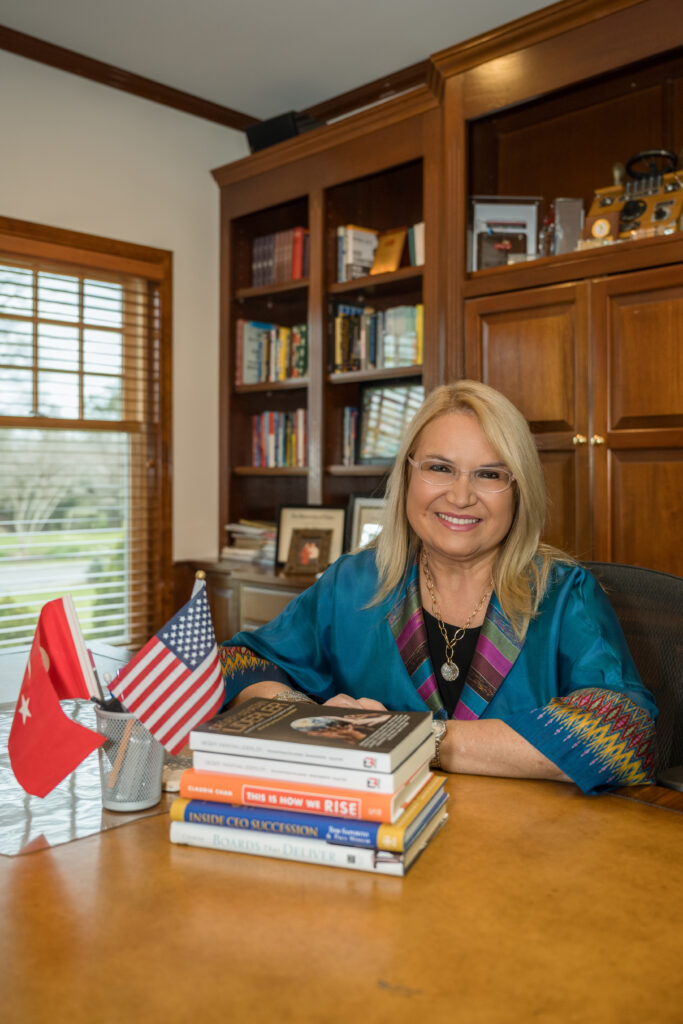
Can you name a Corporate Social Responsibility initiative by a global company that you find particularly impressive and well-executed today?
One of the global programs that inspired me and my husband was “10.000 Women” by Goldman Sachs. They invested in women’s entrepreneurship around the globe, and via training, they developed the ecosystem in those countries. My husband was leading the work in Turkey at Ozyegin University.
When we founded the Beba Innovation and Entrepreneurship Foundation, we wanted to support programs for women entrepreneurs and youth. The “10.000 Women” program played a vital role in our vision.
What challenges have you faced in implementing CSR initiatives, and how have you overcome them?
We launched a youth development center in Myanmar with many stakeholders. It was great in the end, but it took longer than we estimated due to the number of stakeholders. Managing external stakeholders is critical and should be part of the plan from the beginning, with some buffer time.
Having worked in diverse environments like Turkey, Hong Kong, UAE, and the USA, how have these varied cultural experiences shaped your leadership style and approach to business management?
I’ve had incredible learnings, such as understanding different cultures, sensitivities, and societal concerns. I learned to listen, understand, and show empathy. Respecting local norms and adapting for best results. Showing sincere interest in local facts and sensitivities. And more I can say: Give support, get support. Have a global perspective. Communities matter wherever you go.
What strategies have you found most effective for adapting to new cultures and integrating diverse cultural perspectives within a global organization?
Build global teams, learn from them, get a culture coach, read, read, and read, walk around like a local, and experience without fear.
Then, in the organization, it is about getting to know each other; we should invest time in this; we are all humans and come with our habits and learnings into an organization. If I get to know you as a person, I can understand and develop a working relationship based on that.
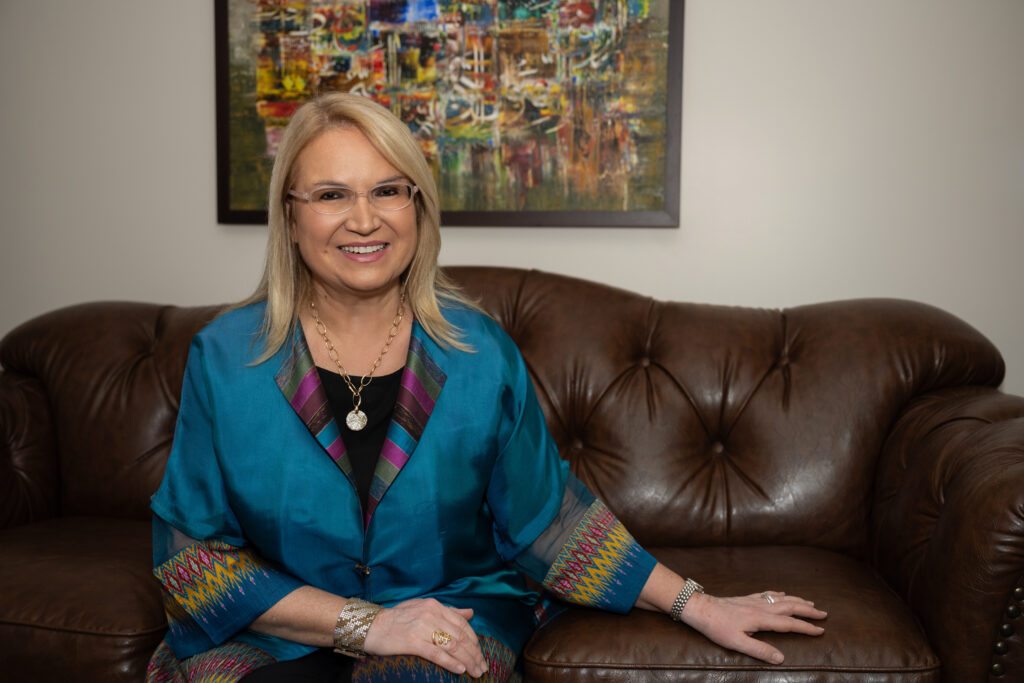
What challenges did you face as a woman in leadership, especially in different cultural and business environments like Istanbul, Hong Kong, Dubai, and New York?
I worked in different countries, continents, and cultures and had remarkable experiences. Sometimes, I was the only woman in the room as a general manager and business leader. If it was an internal setting, I always thought about changing it for the better, meaning we needed more women in that room and setting. I started driving such projects in 2006.
For external settings, it was essential to have my voice and opinions, build partnerships, gain respect and trust, listen, and understand the existing strengths before jumping to recommendations.
Most people were helpful and supportive after the initial shock of having a woman in a big job. I was keen to build win-win relationships and ensure that I conveyed the message that we needed more women in those settings.
How do you see women and their career development in today’s fast-changing job market?
Organizations need talent and good talent all the time. If they are willing to look at the entire pool of candidates without prejudice, they will get the best out of a broader and diverse pool. There are many well-educated women who can achieve great things. It is all about self-confidence, good networks, support systems, and continuous learning.
You mentioned viewing diversity as a “sustainability agenda.” Can you expand on how diversity and sustainability intersect in your work?
The sustainability agenda captures an organization’s impact on the environment, communities, and good governance. Communities is a broad topic from employment to human rights to broader communities where you operate and beyond. Therefore, diversity comes into the picture in this section. Ask yourself questions about your company: Do you represent your communities, consumers, and customers in your workforce? Do you apply best practices regarding human rights and equity in your ecosystem? Do you invest in your communities to support marginalized groups?
As you build your sustainability agenda and strategy, you must answer these questions and have a plan and goals.
What future trends do you foresee in global business leadership and diversity?
If you are a global leader or aspire to be one, having an international mindset and curiosity is key. Being open to change, adapting, learning, unlearning, and relearning is critical. Empathy for everything: consumer, customer, colleagues, and communities. Having a purpose as a leader aligned with your organization and taking others with you on this journey. Then, use technology, AI, and machine learning to make this journey better and more effective.
Trends in diversity will be more data-based, KPI-oriented, transparent, and complemented by equitable and fair practices and inclusive HR and talent programs. It will be part of the ESG agenda, with KPIs shared with all stakeholders.
It will be part of the culture and change agenda.
What do you think about how should companies prepare for these changes? For example, many arguments are going on about “Diversity Hire.” Do you believe DEI regulations are reasonable, outdated, or need to be updated?
Diversity, equity, and inclusion benefit businesses, people, and communities.
Companies need every tool and approach to attract and retain talent. People want to be empowered, engaged, treated fairly and equitably, and included in decisions and actions.
As long as companies have systems and processes that are fair, equitable, and inclusive, they will win in the short and long term. Diversity, on the other hand, is good for innovation and growth. Representing consumers and customers in our organizations will be good for business and results. We are not talking about quotas here but care for diversity, merit being the leading reason for the final choice.
Please tell me more about the Beba Innovation & Entrepreneurship Foundation and its impact on supporting youth and women in entrepreneurship. What inspired you to co-found the foundation, and what are its main goals and achievements so far? How does the foundation measure success in its initiatives, especially in fostering youth and women’s entrepreneurship?
Beba Innovation and Entrepreneurship Foundation was established in New York 2017 as a family foundation. My husband is a professor of entrepreneurship and has been an entrepreneur. When we moved to the U.S., we decided to establish a family foundation, bringing his knowledge and experience, as well as my corporate experience and diversity focus. We focus on training, mentoring, networking, and seed funding.
We have partnerships with universities in the U.S. and Turkiye to hold business pitch competitions supported by coaches and with seed funding for top 3 teams. Columbia University School of Professional Studies, Mercy University, Trinity University, and Bilkent University are some of them.
We have a mentoring service via the Million Women Mentors program in Turkiye and in partnership with BinYaprak, Turkishwin, the U.S. Chamber of Commerce, Stem Connector, and TOBB. We have youth training and education in Turkiye with Darussafaka Schools, of which we are very proud.
We can measure impact via competition participation through team coaching, girls’ mentoring, youth training, and funds invested. It is very satisfactory to be able to impact youth in this fashion. We are grateful.
Please tell me about August Leadership.
After I retired from the corporate world and PepsiCo in May 2020, I joined August Leadership as a partner. I have led diversity, equity, and inclusion advisory work and leadership advisory projects. I am also involved in executive search. It is all about talent, development, and engagement.
What other social responsibility projects have you been involved in? How have these initiatives impacted the communities and industries they target? 1 Million Girls, etc.
I am on the board of the International Youth Foundation as a Co-Vice Chair. We are focusing on youth development and workforce readiness.
The Million Women Mentors project is a multi-stakeholder and multi-year project that creates an ecosystem that supports girls entering, staying, and developing in STEM fields. Now, we also have no STEM version or high school mentoring.
What has been the most valuable lesson in your career, and how has it shaped your leadership style?
Believe in yourself.
Be open to new opportunities.
Trust the system, but also have your sponsors.
Could you elaborate on what it means to have sponsors within a company? Your answer will be precious for young girls and women.
Mentoring programs are great but not enough. You need sponsors in life. Someone who can defend and support you when you are not in the room. At work, these people can come via working with them, working in a task force with them, being mentored by them, or being exposed to them in some work capacity. Our performance, results, capabilities, and communication will build or can build a set of sponsors.
What advice would you give young leaders, especially women, on navigating executive roles in multinational corporations and contributing to social responsibility?
What is the legacy you want to leave in life? Again, ask these questions yourself. That is the starting question for everything—career, family, friends, and communities. You write down your goals and review them every few years. What are your passion areas? Make sure your passion areas are part of your legacy plan.
What advice would you give emerging leaders on creating and leading successful social responsibility projects?
Always, legacy and passion.
Do your homework before you jump into action. If you do not know, test it and try to decide afterward.
Build networks, have mentors, and get ideas from them.
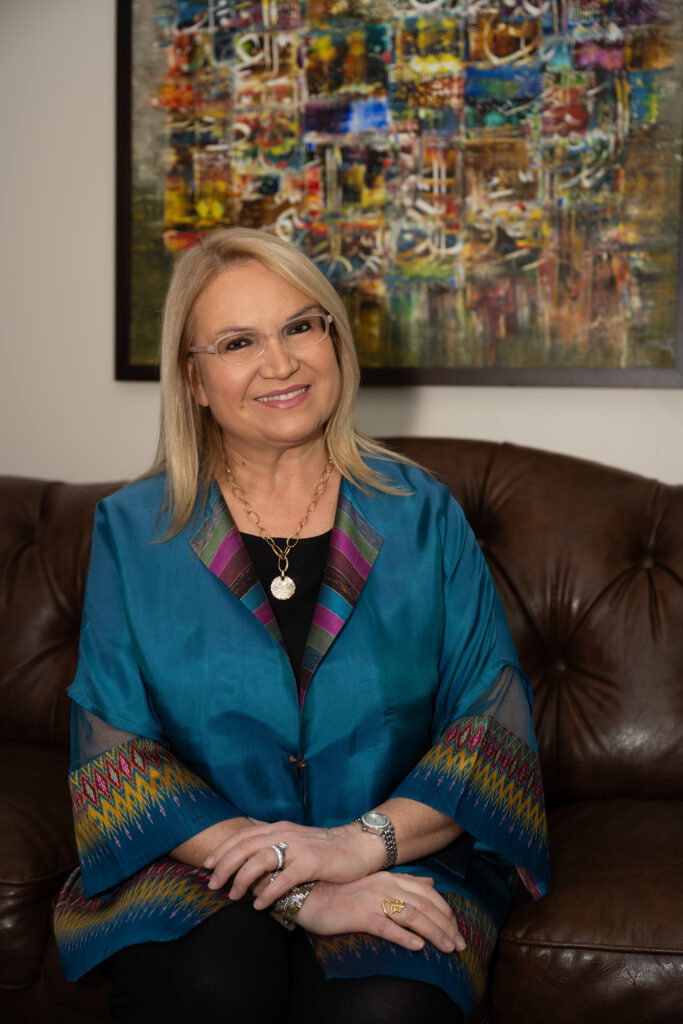
Can you share how you manage work-life balance, especially given your extensive responsibilities in various global roles?
First, you must be organized and plan for the week, the month ahead, and sometimes the months. Have your family planner.
Throughout the years, support requirements changed. When kids were young, spouse and family support and domestic work support were essential. Now, whether kids are in college or working, it is easier. When I traveled for work in the past, we made sure my husband was at home with the kids and sometimes other family members, mothers, and sisters; it is incredible to have such support and help.
What inspires and motivates you to pursue excellence in your career and philanthropy?
Continuous learning, working with others to achieve results, supporting youth and growth in general.
How have your roots and international experiences shaped your personal and professional outlook?
Being Turkish means we are European, Middle Eastern, and Asian. When I worked on different continents, I understood the value of this incredible combination. It helped me a lot. Think about your values and adapt them to your new environment.
What do you enjoy doing in your free time? Do you have any hobbies or interests that you feel passionate about?
I love singing, painting, and learning languages to sing.
Singing. This is wonderful to hear. What is your favorite song to sing?
Adagio in Italian by Lara Fabian
This is fantastic. And now, please tell me, how has your family or support system impacted your career journey and success?
Very important. I am grateful to my husband, my broader family, and our kids for their support with three international moves and a demanding career. Domestic help and planning are also needed.
Are there any significant life experiences or challenges that have profoundly influenced your personal development and leadership style?
Losing my father after I graduated from college, getting married to my husband, a professor, a supportive partner, and a mentor. Becoming a mother. Moving to Human Resources. Losing my boss when I moved to Dubai; he passed away on a family trip at the age of 60. Looking back, things seem easy, but it wasn’t when I was in the moment.

Can you share the philosophical or ethical perspectives guiding your decisions in your personal life and professional career?
My experiences shaped my values throughout the years, and I always believed in my passion for what I do. I am also a true believer in the determination to achieve. Listening, understanding, and showing empathy are vital. Respect and trust are very critical. I always repeat these words for the new generation: Get support, give support. Perseverance. Perspective. And create global impact.
How do you manage your daily schedule, especially with your global commitments?
My day starts early, given I have clients, colleagues, and mentees in Asia, the Middle East, and Europe. Then, I have a short lunch break around noon, leading me into more North American meetings. I like to get up and walk between meetings. I want to be active rather than sitting for too long. I have a personal trainer for strength-building during the week when I do not travel. When I travel, I like walking, exploring where I am, and visiting museums and parks. I use Outlook calendar, Teams, Zoom, Expedia, Collect Board, Open Table, and LinkedIn videos to make things easier and faster. I do not have an assistant anymore; I manage everything by myself.
The Lasts of Umran Beba
Last book: Good Vibes, Good Life
Last TV Show or Movie: The Resident
Last travel: Washington, DC
Favorite food: Dover Sole
Favorite dessert: Tiramisu
Favorite quote: Chances occur to prepared minds.
Favorite place in the world: Lake Como
Please mention some women you admire, who have inspired you, and whom you would like me to interview and feature at She.Work?
I recommend 3 incredible women. Pat Milligan, Faith Popcorn, and Tendu Yogurtcu. They all will be a great addition.
Connect with Umran Beba on LinkedIn
Get to know August Leadership
© 2024 SHE Media www.she.work. All rights reserved. No part of this publication, including text and photos, should be reproduced, distributed, or transmitted in any form or by any means without the prior written permission of SHE Media.



